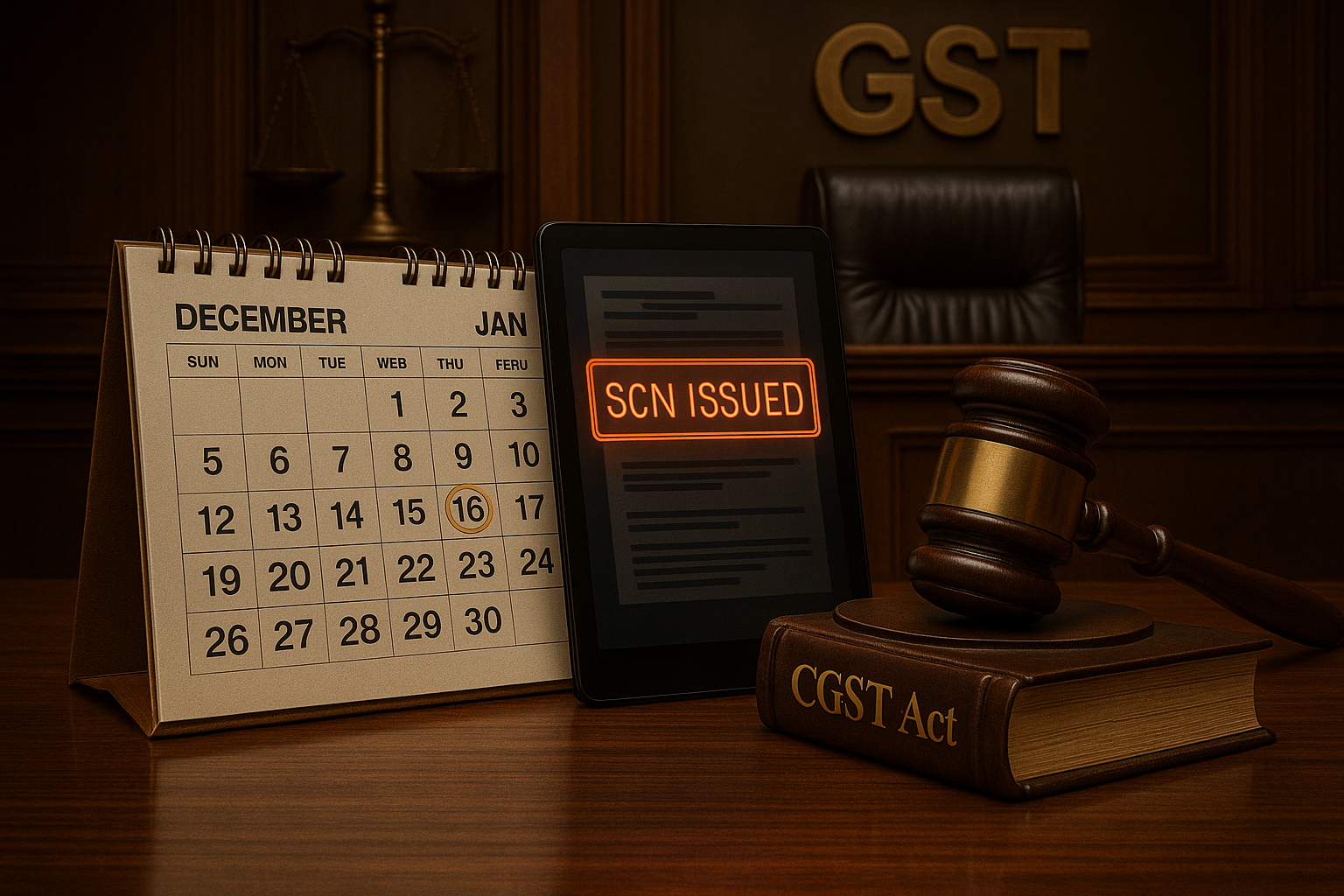In a landmark decision, the Delhi High Court has clarified a key procedural aspect under the Goods and Services Tax (GST) regime. The Court held that the phrase “three months” used in Section 73(2) of the CGST Act must be interpreted as three calendar months and not as a rigid 90-day period.
This judgment was passed in the case of Tata Play Ltd. vs Sales Tax Officer, offering much-needed clarity on how limitation periods should be interpreted while issuing Show Cause Notices (SCNs) under Section 73, which deals with recovery of tax not involving fraud, willful misstatement, or suppression.
Case Background: The Tata Play Matter
Tata Play Ltd. challenged the validity of a show cause notice issued on November 30, 2024, for the Financial Year 2020–21, contending that the SCN violated the time limit under Section 73(2).
-
Under Section 73(10) of the CGST Act, the time limit to issue an adjudication order is three years from the due date of the annual return (Feb 28, 2022 for FY 2020–21), i.e., the order deadline was February 28, 2025.
-
Section 73(2) mandates that the SCN must be issued at least three months before this deadline — in this case, by November 28, 2024 (if counted as 90 days).
-
The taxpayer argued that the SCN issued on November 30, 2024, was two days late and hence time-barred.
However, the Delhi HC rejected this contention.
Court’s Verdict: Calendar Months vs 90 Days
The Delhi High Court interpreted “three months” in Section 73(2) as three full calendar months — not exactly 90 days.
Key Legal Reference: The Court relied on Section 3(35) of the General Clauses Act, which defines “month” as a calendar month, and cited precedent from Himachal Techno Engineers v. Union of India (2010), which supported using calendar months in statutory interpretation unless specifically mentioned otherwise.
Thus, an SCN issued on November 30, 2024, was deemed valid, as it met the “three calendar months before” criterion ahead of the final order date of February 28, 2025.
Legal Interpretation of Key CGST Provisions
| Section | Provision Summary | Court’s Interpretation |
|---|---|---|
| 73(2) | SCN must be issued 3 months before adjudication | “Three months” = calendar months |
| 73(10) | Adjudication must be completed within 3 years | Counted from due date of annual return |
| 74(2) | In fraud cases, SCN to be issued 6 months before | Similar interpretation expected |
This interpretation avoids confusion caused by variable month lengths and aligns with established legal norms.
Additional Observations by the Court
-
No Violation of Natural Justice: The taxpayer claimed they were denied a personal hearing. However, the Court noted that hearings were scheduled, but the petitioner did not respond or request an adjournment. Section 75(5) permits three adjournments but does not obligate authorities to offer more.
-
Improper Clubbing of Years: The Court also emphasized that each financial year must be treated independently for SCN issuance. Clubbing multiple years in a single SCN breaches the intent of Section 73.
Broader Impact on Taxpayers and Authorities
For Taxpayers:
-
Provides relief in interpretation and prevents overzealous procedural challenges based on minor date differences.
-
Reinforces importance of calendar-based deadline awareness, especially when contesting GST notices.
For Tax Authorities:
-
Offers procedural clarity for issuing SCNs in compliance with Section 73.
-
Reinforces the need to avoid clubbing tax periods across financial years in one SCN.
-
Encourages strict compliance with issuance timelines to protect validity of demand orders.
Expert Commentary
Tax law experts view this judgment as a balanced approach that aligns statutory language with practical realities.
“This verdict removes ambiguity and brings consistency in interpreting limitation clauses in tax laws. It will influence how SCNs are framed and defended going forward,” noted a senior GST practitioner.
Real-World Example Timeline
-
Annual return due date for FY 2020–21: February 28, 2022
-
Order deadline under Section 73(10): February 28, 2025
-
SCN must be issued by: November 30, 2024 (using calendar months)
-
Actual SCN issued: November 30, 2024












